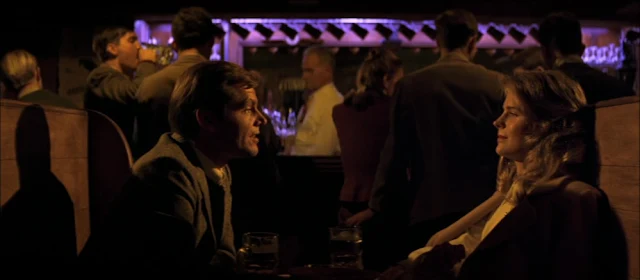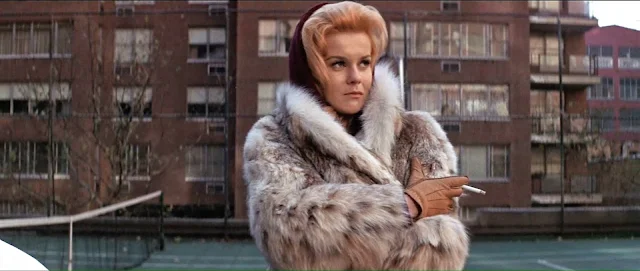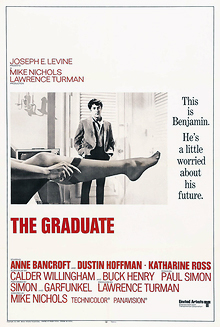A blog formerly known as Bookishness / By Charles Matthews
"Dazzled by so many and such marvelous inventions, the people of Macondo ... became indignant over the living images that the prosperous merchant Bruno Crespi projected in the theater with the lion-head ticket windows, for a character who had died and was buried in one film and for whose misfortune tears had been shed would reappear alive and transformed into an Arab in the next one. The audience, who had paid two cents apiece to share the difficulties of the actors, would not tolerate that outlandish fraud and they broke up the seats. The mayor, at the urging of Bruno Crespi, explained in a proclamation that the cinema was a machine of illusions that did not merit the emotional outbursts of the audience. With that discouraging explanation many ... decided not to return to the movies, considering that they already had too many troubles of their own to weep over the acted-out misfortunes of imaginary beings."--Gabriel García Márquez, One Hundred Years of Solitude
Search This Blog
Showing posts with label Mike Nichols. Show all posts
Showing posts with label Mike Nichols. Show all posts
Tuesday, October 1, 2019
Carnal Knowledge (Mike Nichols, 1971)
Carnal Knowledge (Mike Nichols, 1971)
Cast: Jack Nicholson, Ann-Margret, Art Garfunkel, Candice Bergen, Rita Moreno, Cynthia O'Neal, Carol Kane. Screenplay: Jules Feiffer. Cinematography: Giuseppe Rotunno. Production design: Richard Sylbert. Film editing: Sam O'Steen.
Carnal Knowledge begins as a light comedy of manners set in the late 1940s, when college students were supposedly less casual and more poorly informed about sex. Jonathan (Jack Nicholson), who claims to be more sexually experienced than his Amherst roommate, Sandy (Art Garfunkel), gives Sandy some advice on how to approach Smith College student Susan (Candice Bergen) at a mixer. The scene has some of the keen ear for awkward attempts at communication found in screenwriter Jules Feiffer's cartoons and in director Mike Nichols's comedy routines with Elaine May. Eventually, Sandy and Susan get together, with Jonathan still coaching Sandy on sex, until Jonathan himself makes his own moves -- unknown to Sandy -- on Susan. He succeeds, in an excruciating scene in which Susan's confusion about the loss of her virginity plays across her face, partly obscured by the grunting Jonathan on top of her. And from then the film becomes increasingly sour, as the years pass and the misogynistic Jonathan continues to meddle in Sandy's life but also makes a mess of his own relationships with women. He takes up with Bobbie, a model played by Ann-Margret, for what begins as a passionate fling and ends in misery. By the end of the film he is being serviced by Louise (Rita Moreno), a prostitute whom he hires to perform a routine -- and abuses when she deviates from it -- designed to give him an erection. It's a sad, rather hopeless film that despite fine performances from all the actors never quite convinces us that its characters are anything but puppets of the writer and director. Jonathan and Sandy seem incapable of change and growth. Something makes me think that Carnal Knowledge would have been a better film if it had been told from the women's point of view, that it would have made a more telling point about the male ego and about the great gulf between the sexes if we had seen Jonathan and Sandy through Susan and Bobbie's eyes. We get glimpses of that, but Susan disappears from the film after she marries Sandy and he, egged on by Jonathan, drifts into mid-life affairs. Bobbie's entrapment into Jonathan's world leads to a failed suicide attempt, after which she, too, vanishes from the story. Feiffer and Nichols never make it clear whether their film is a satire on sex in modern society or just a particularly bleak story about unhappy people.
Sunday, February 21, 2016
The Graduate (Mike Nichols, 1967)
The Graduate and It Happened One Night (Frank Capra, 1934) are both fine examples of the "runaway bride" trope, but there the resemblance ends in irony. In the latter, Ellie (Claudette Colbert) balks at the altar and runs away, veil and train streaming, to the arms of Peter (Clark Gable), but we never see them together: The film ends with the sound of a toy trumpet and we see the "walls of Jericho" blanket falling. It's a gratifying "happy ending," in which order is brought out of chaos, which is the way a romantic comedy is traditionally supposed to end. But in The Graduate the situation is reversed: The wedding that is supposed to restore order ends in chaos, as Benjamin (Dustin Hoffman) arrives to carry off Elaine (Katharine Ross), interrupting the nuptial kiss after the wedding is over. And then we see them together on the bus, as Nichols holds the camera on their faces just a little longer than he might: The smiles on their faces begin to fade, and uncertainty takes hold. We aren't supposed to wonder about what happens to Ellie and Peter, but we can't help feeling the chill of reality fall over Elaine and Benjamin. Watching The Graduate today, I find it a troubling, even cynical treatment of some serious themes. Benjamin, for example, seems to be designed as a comic figure, with his little gulps and tics and his awkwardness when faced with the seductive Mrs. Robinson (Anne Bancroft). But a more sympathetic viewer might diagnose him as clinically depressed, desperately being borne along by the tide of events, just as he's borne along by the moving sidewalk at the airport in the film's beginning, and then trying to avoid the consequences of the freedom he has earned by graduating. He escapes from the adult world into his room, with its burbling fish tank that foreshadows his underwater escape when he's expected to "perform" in the scuba gear he's been presented by his parents. When he does commit himself to a course of action, deciding suddenly and almost arbitrarily that he will marry Elaine, he has clearly lost his mind. And is there a sadder figure in movies than Mrs. Robinson, who lives in alcoholic denial of the disaster her life has become? Bancroft's performance in the scene in which Benjamin tries to get her to open up about her life is simply stunning. The screenplay by Calder Willingham and Buck Henry is the only really funny part of the film, with its classically quotable lines: "Plastics." "Mrs. Robinson, you're trying to seduce me. ... Aren't you?" "I think you're the most attractive of all my parents' friends." It's Nichols's direction that turns our attention to the reality undermining the comedy. The Graduate is often seen as a kind of twin to Bonnie and Clyde (Arthur Penn, 1967): two films that announce an epochal shift in Hollywood, upending audience expectations by addressing themselves to a more sophisticated young audience. As a satire on upper-middle-class life in the mid-20th century that masquerades as a romantic comedy, The Graduate was enormously influential. I just can't make up my mind whether that influence was for the good.
Friday, October 23, 2015
Who's Afraid of Virginia Woolf? (Mike Nichols, 1966)
I don't know if Who's Afraid of Virginia Woolf? is a great play -- I've never seen it -- but it's not a great movie, perhaps because it sticks so closely to an uncinematic source. What it does have is one great performance, Richard Burton's, and one near-great one from Elizabeth Taylor. Unfortunately, George Segal and Sandy Dennis are miscast as Nick and Honey: He's too hip and she's too rabbity for their roles to take dramatic shape. Ideally, I think, Nick and Honey should be the conventional flies lured into George and Martha's sinister web. But as Mike Nichols directs them, they don't bring enough initial squareness to their parts, so their disintegration during the game-playing of their hosts happens too swiftly. What makes Burton's performance so memorable is his ability to shift moods, from sullen to mocking, from beleaguered to triumphant, in an instant. He also quite brilliantly suggests George's only barely latent homoerotic attraction to Nick, making it clear that he's titillated by the very idea of Martha's sleeping with the younger man. Taylor falters only in letting her Martha get too shrill for too long: A slower crescendo to her shrewishness would have been welcome in many scenes. Oscars went to Taylor and Dennis, but Burton lost to Paul Scofield in A Man for All Seasons (Fred Zinnemann, 1966) and Segal to Walter Matthau in The Fortune Cookie (Billy Wilder, 1966). Oscars also went to Haskell Wexler for black-and-white cinematography, Richard Sylbert and George James Hopkins for black-and-white art direction and set decoration, and Irene Sharaff for black-and-white costuming. This was the last year in which these categories were divided into color and black-and-white. It's sometimes observed that except for Cimarron (Wesley Ruggles, 1931), Who's Afraid of Virginia Woolf? is the only film to have received nominations in every category for which it was eligible. But it's likely that if the color/black-and-white division had been eliminated a year earlier, the film would have been shut out of some of these categories. Though he was a noted cinematographer, Wexler doesn't do his best work on Virginia Woolf, partly because Nichols, making his directing debut, called on him to do some close-up shots that not only don't hold focus but also distract from the essence of the drama, the interplay of its four characters. Nominations also went to Ernest Lehman as the film's producer and screenwriter, Nichols as director, George Groves for sound, Sam O'Steen for film editing, and Alex North for score. Oh, and if you're wondering why the title is sung to "Here We Go 'Round the Mulberry Bush" instead of "Who's Afraid of the Big Bad Wolf?", essentially killing the joke, it's because the Disney studios, who owned the rights to the tune, wanted too much money.
Subscribe to:
Comments (Atom)
























